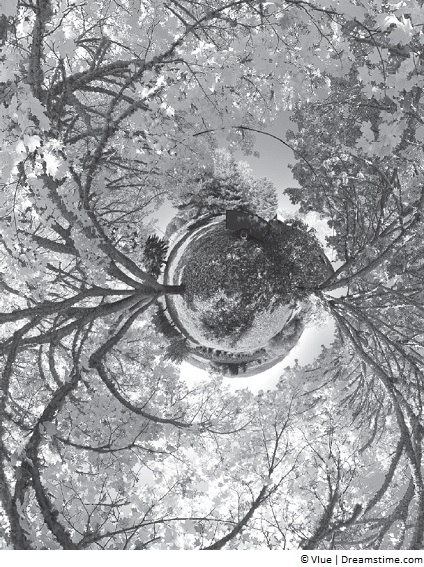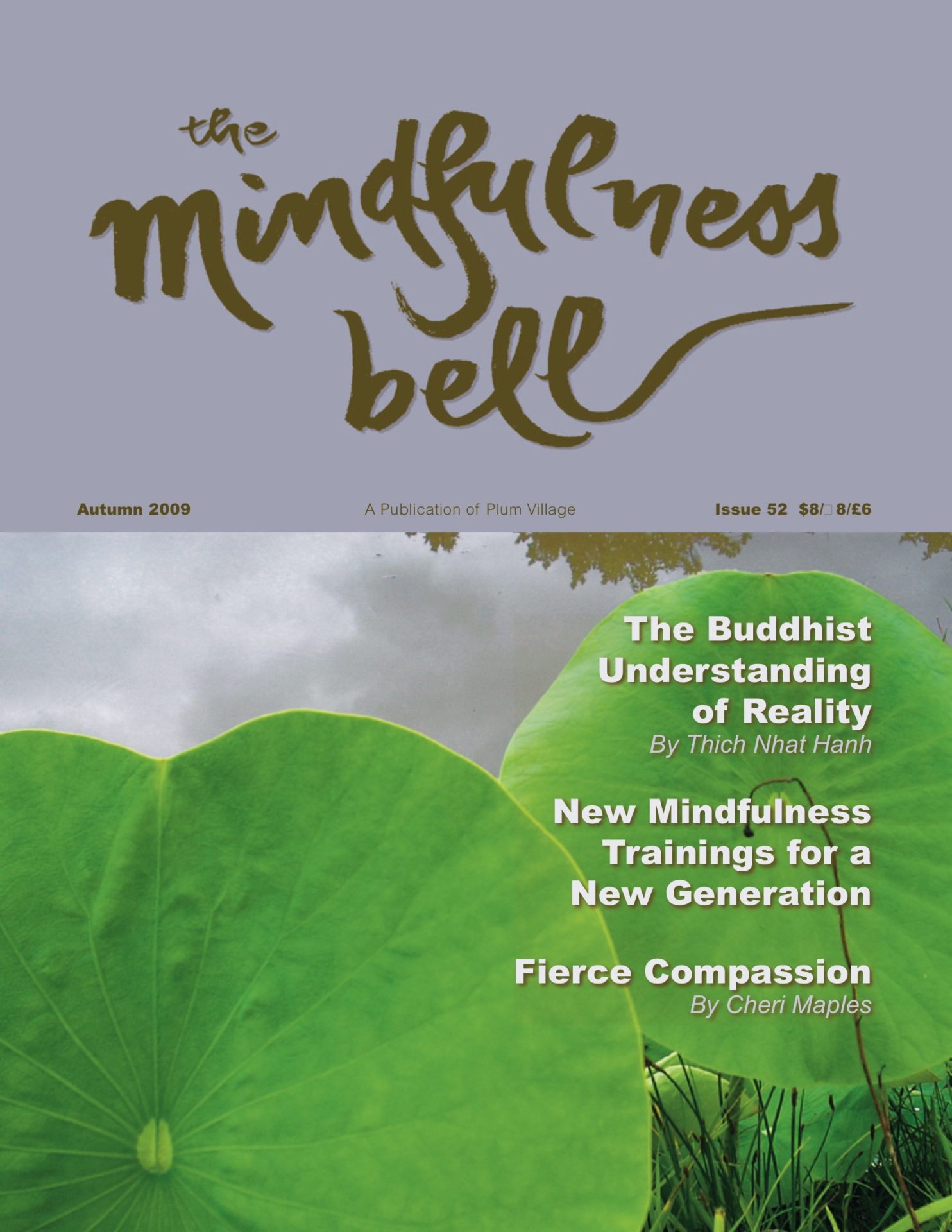Spirituality and Global Warming
By Brother True Dharma Sound, Phap Thanh

A Reflection and a Mindfulness Training: “Aware of our responsibility and love for ourselves and for our environment, we want to practice living in harmony with humans, animals, plants, and minerals. Aware of our interrelatedness with all beings, we know that harming others is harming ourselves.”
Our planet is under stress and our civilization is in trouble,
Spirituality and Global Warming
By Brother True Dharma Sound, Phap Thanh

A Reflection and a Mindfulness Training: “Aware of our responsibility and love for ourselves and for our environment, we want to practice living in harmony with humans, animals, plants, and minerals. Aware of our interrelatedness with all beings, we know that harming others is harming ourselves.”
Our planet is under stress and our civilization is in trouble, according to L. Brown, president of the Earth Policy Institute and a highly honored scientist. The majority of scientists agrees that our planetary climate is heating up and that there is an urgency to prevent further damage. Increasing temperatures, melting glaciers, rising sea levels, expanding deserts, shrinking forests, disappearing plants and animals, eroding soils, and falling water tables are just a few signs. These imbalances have the potential to lead to an immense amount of suffering through droughts, drinking water shortages, famines, increased occurrences of storms, floods and other climate-related disasters.
Our environmental support system is rapidly changing and it seems that our civilization is moving toward self-destruction. We seem to be confronted with the challenge of accepting the death of our civilization. This includes accepting our own death. On the spiritual level, we are challenged to practice with confronting our death, to arrive at a point of “no death, no fear.”
Global warming is not only a biological crisis; it is also an emotional crisis, a psychological crisis, and a spiritual crisis. It is a crisis of me as a person, of us as a society, of us as the human species, of all beings inhabiting planet Earth (including humans, animals, plants, minerals). But this crisis is an opportunity for fundamental changes in our own lives, in our situation as humans, and in the way we relate to the planet. It is an opportunity to practice interbeing.
As spiritual practitioners we can practice awareness of the rising and falling of all civilizations and acceptance of the coming death of our civilization. We can practice with non-fear when facing global warming. Looking at the scientific proof of the need for urgent action, we can practice non-despair to keep our freshness for the needed action. It is time to face and digest what is going on around us and act accordingly.
What We Eat
I would like to take a closer look at the topic of eating a vegetarian diet and the impact on our environment and global warming. Consuming less meat and dairy is an action many people all over the globe can commit to, without having to invest large amounts of money, and it has a relatively significant impact on global warming. Cattle-rearing generates more global warming greenhouse gases, as measured in CO2 equivalent, than transportation.1 “Livestock are one of the most significant contributors to today’s most serious environmental problems,” senior U.N. Food and Agriculture Organization (FAO) official Henning Steinfeld says. “Urgent action is required to remedy the situation.”1
The methods of raising animals for food are especially alarming in the USA. But according to a recent UN report, it is the case worldwide that with increased prosperity, people are consuming more meat and dairy products every year. Global meat production is projected to more than double from 229 million tons in 1999/2001 to 465 million tons in 2050, while milk output is set to climb from 580 to 1043 million tons.2 So the current situation in the USA will be mirrored in a growing number of countries.
An estimated 40,000 children die each day—fourteen million or so a year—from diseases such as measles and diarrhea that are commonly associated with poverty, overcrowding, and malnutrition. About sixty percent of deaths in children under the age of five in developing countries are thought to be related to malnutrition. Millions more children survive on the edge of starvation.3
Meanwhile, corn and wheat are largely grown to feed livestock (cows, pigs, chickens, etc.) or to produce alcohol. Over 95 percent of oats, 90 percent of the soy crop, 80 percent of corn and 70 percent of all grains produced in the United States are for feeding livestock. The world’s cattle alone consume a quantity of food equivalent to the caloric needs of 8.7 billion people, more than the entire human population on Earth. Eating meat and drinking alcohol with mindfulness, we will realize that we are eating the flesh of our own children.5,6
U.N. Recommendation
The U.N. recommendation is clear: “The environment impact per unit of livestock production must be cut by half, just to avoid increasing the level of damage beyond its present level”.1 We need to reduce at least 50 percent of meat industry products, and we must consume 50 percent less meat. The U.N. also reports that even if cattle-rearing is reduced by 50 percent, we still need to use new technology to help the cattle-rearing industry create less pollution, such as choosing animal diets that can reduce enteric fermentation and consequent methane emissions. Urgent action must be taken at the individual and collective levels. As a spiritual family and a human family, we can all help avert global warming with the practice of mindful eating. Going vegetarian may be the most effective way to fight global warming.
From Vegetarian to Vegan
Over the last two thousand years, many Buddhist practitioners have practiced vegetarianism. The community at Deer Park Monastery is vegetarian with the intention to nourish our compassion towards the animals. We also eat vegetarian in order to protect the earth, preventing the greenhouse effect from causing irreversible damage.5
According to researchers at the University of Chicago, being a vegan is more effective in the fight against global warming than buying an eco-friendly car. The typical U.S. diet, about 28 percent of which comes from animal sources, generates the equivalent of nearly 1.5 tons more carbon dioxide per person per year than a vegan diet with the same number of calories. By comparison, the difference in annual emissions between driving a typical car and a hybrid car, which runs off a rechargeable battery and gasoline, is just over one ton. If you don’t want to go vegan, choosing less-processed animal products and poultry instead of red meat can help reduce the greenhouse load.4
Eating a vegetarian or vegan diet is possible for most people on our planet. We simply need to pay attention to creating a balanced diet, perhaps supplementing certain nutrients like vitamin B12. A completely vegan diet might not be possible for everyone, but reducing our consumption of meat is possible. This will reduce greenhouse gases and help to create less suffering for all beings on our planet.
Brother True Dharma Sound, Thich Chan Phap Thanh, was formerly known as Bernd Ziegler. He resides at Deer Park Monastery in Escondido, California.
Sources
1 H. Steinfeld, P. Gerber, T. Wassenaar, V. Castel, M. Rosales, and C. de Haan, “Livestock’s Long Shadow: Environmental Issues and Options,” Livestock, Environment and Development (2006).
2 “Rearing Cattle Produces More Greenhouse Gases than Driving Cars, U.N. Report Warns,” U.N. News Center, 29 Nov. 2006.
3 Read, C., “Behind the Face of Malnutrition: What Causes Malnutrition?”, New Scientist magazine, Issue 1704, 17 Feb. 1990.
4 G. Eshel and P. Martin, “It’s Better to Green Your Diet Than Your Car,” New Scientist magazine, Issue 2530, 17 Dec. 2005.
5 Thich Nhat Hanh, “Mindfulness in the Marketplace – Compassionate Responses to Consumerism,” Parallax Press, Berkeley, California (2002).
6 M. Vesterby, K. Krupa. “Major Uses of Land in the United States, 1997,” Statistical Bulletin No. 973. Resource Economics Division, Economic Research Service, United States Department of Agriculture (1997).
Vitamin B12 in a Vegan Diet
I feel very happy that, under the guidance of Thay, our Sangha has made a successful transition to a diet free from animal products, in all of the main practice centers and during retreats of mindfulness. Our Sangha is making a significant contribution to reducing the production of greenhouses gases which contribute to global warming, and is setting a powerful example for others in the world to follow. Furthermore, we contribute less to the suffering of animals in the egg and dairy industry that often live in inhumane conditions.
While I wholeheartedly support this way of consumption in our community, I hope that the Sangha will consider the nutritional aspects of a diet free from animal products. A well-rounded vegan diet can be very healthy in many respects; however, it lacks some vitamins and minerals that are essential for our body’s health. A vegan diet completely lacks Vitamin B12, and contains less calcium than a diet with dairy foods. B12 is one of several essential elements needed for the production of hemoglobin, a molecule in red blood cells. One cannot obtain B12 from vegetal sources, only through animal products, nutritional supplements, or select fortified foods. The body can store reserves of B12 from two to four years without needing any new supplies. Once the reserves of B12 begin to run out, and without any new intake, the body begins lacking healthy red blood cells, a condition known as vitamin deficiency anemia.*
Red blood cells carry oxygen and other nutrients throughout the body; the symptoms of anemia range from mild to severe. The most common physical symptoms are pale skin, weakness, fatigue and lack of energy, numbness or poor circulation in extremities, loss of appetite and weight loss. Symptoms can also include cognitive changes such as memory loss or forgetfulness, confusion, difficulty concentrating, thinking and planning, general malaise, and depression.
Having suffered from a severe case of anemia after living at Plum Village as a novice monk, I would like to help the community be aware of this important nutritional aspect. In the past couple of years, I have spoken with several people in the Sangha, both lay and monastic, who shared that they had experienced mild cases of anemia, as diagnosed by a medical doctor.
Many people in the Sangha are aware of the need for B12 in a vegan diet, but it may not yet be common knowledge throughout the community. Hopefully we can help everyone to be aware of the nutritional supplements needed in order to prevent individuals from experiencing anemia and its health related consequences. For the vast majority of people, a daily multivitamin with B12, or a B-complex vitamin will do the job.
Taking care of our bodies in this way may help us to cultivate better health, which gives us more energy and stamina for our practice of mindfulness and for serving others.
— David Viafora, Courageous Faith of the Heart

